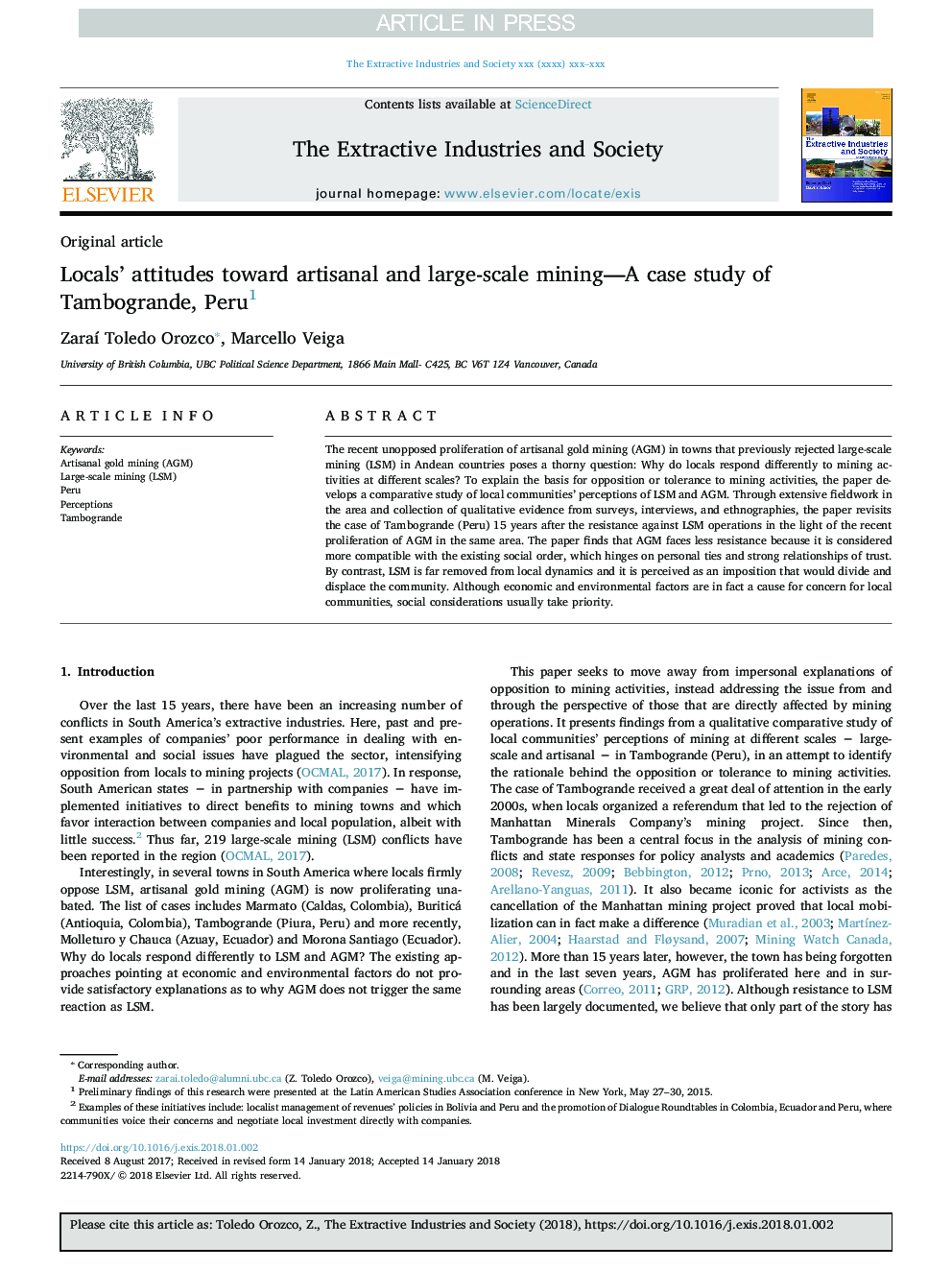| Article ID | Journal | Published Year | Pages | File Type |
|---|---|---|---|---|
| 7454220 | The Extractive Industries and Society | 2018 | 8 Pages |
Abstract
The recent unopposed proliferation of artisanal gold mining (AGM) in towns that previously rejected large-scale mining (LSM) in Andean countries poses a thorny question: Why do locals respond differently to mining activities at different scales? To explain the basis for opposition or tolerance to mining activities, the paper develops a comparative study of local communities' perceptions of LSM and AGM. Through extensive fieldwork in the area and collection of qualitative evidence from surveys, interviews, and ethnographies, the paper revisits the case of Tambogrande (Peru) 15 years after the resistance against LSM operations in the light of the recent proliferation of AGM in the same area. The paper finds that AGM faces less resistance because it is considered more compatible with the existing social order, which hinges on personal ties and strong relationships of trust. By contrast, LSM is far removed from local dynamics and it is perceived as an imposition that would divide and displace the community. Although economic and environmental factors are in fact a cause for concern for local communities, social considerations usually take priority.
Keywords
Related Topics
Life Sciences
Environmental Science
Management, Monitoring, Policy and Law
Authors
Zaraà Toledo Orozco, Marcello Veiga,
